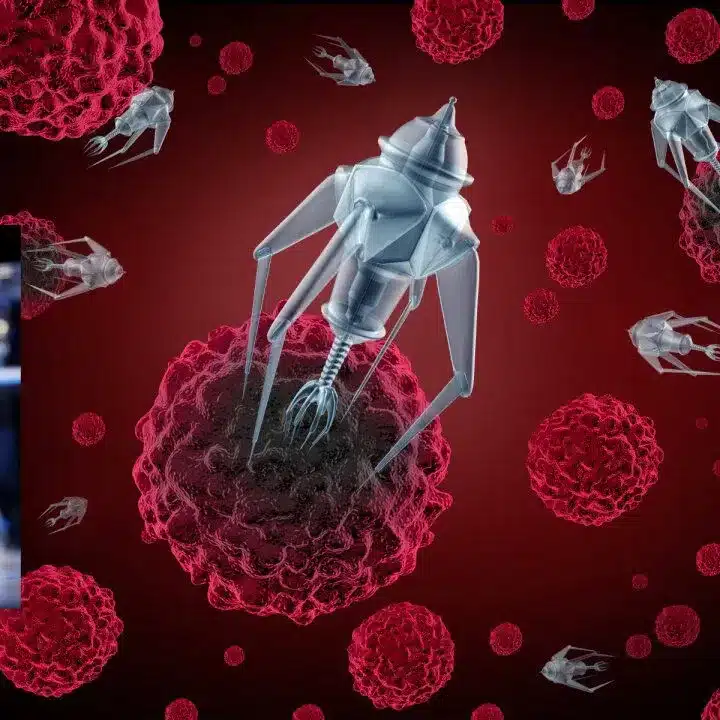About Polymer Nanoparticles:
- Polymer nanoparticles are solid particles made from macromolecular polymers, with sizes ranging from 10 to 1000 nm.
- These nanoparticles can shield encapsulated macromolecules from enzymatic degradation and alter the dynamic behavior and tissue distribution of the drugs they carry in vivo.
About Nanoparticle-based Drug Delivery System:
- Nikkomycin-loaded Nanoparticles:
- Scientists have utilised Nikkomycin, a chitin synthesis inhibitor produced by Streptomyces bacteria, and loaded it onto polymeric nanoparticles to target fungal infections.
- Chitin, the main component of fungal cell walls, is absent in the human body, making it an ideal target for antifungal drugs. The nanoparticle-based delivery system leverages this difference to disrupt fungal growth.
- Effectiveness against Aspergillosis:
- The formulation has shown significant effectiveness against Aspergillus flavus and Aspergillus fumigatus, the fungi responsible for pulmonary aspergillosis.
- The nanoparticle-based drug delivery system inhibits fungal growth without causing cytotoxic (cell-damaging) or hemolytic (red blood cell-damaging) effects, making it a safer treatment option.
- Potential applications: The method is particularly beneficial for patients with conditions like asthma, cystic fibrosis, HIV, cancer, or those on long-term corticosteroid therapy, who are at higher risk of fungal infections.
- About Nanotechnology:
- Nanotechnology involves the manipulation of atoms and molecules at the nanoscale, typically within the range of 1 to 100 nanometers, to create structures, devices, and systems with unique properties.
- Nanoparticles are ultra-small particles with a high surface area-to-volume ratio, which gives them unique physical and chemical characteristics.
Q1. How is Nanotechnology transforming manufacturing processes?
Nanomaterials like nanoparticles, nanotubes, graphene, etc. exhibit unique mechanical, electrical, thermal, and optical properties that are beneficial for manufacturing. Nanoscale surface engineering of materials improves properties like wear resistance, strength, ductility, etc.
Last updated on August, 2025
→ UPSC Mains Admit Card 2025 has been released on 14th August at www.upsc.gov.in.
→ UPSC Mains 2025 will be conducted on 22nd August 2025.
→ UPSC Notification 2025 was released on 22nd January 2025.
→ UPSC Calendar 2026 is released on 15th May, 2025.
→ UPSC Prelims Question Paper 2025 and Unofficial Prelims Answer Key 2025 are available now.
→ UPSC Prelims Result 2025 is out now for the CSE held on 25 May 2025.
→ The UPSC Vacancy 2025 were released 1129, out of which 979 were for UPSC CSE and remaining 150 are for UPSC IFoS.
→ UPSC Prelims 2026 will be conducted on 24th May, 2026 & UPSC Mains 2026 will be conducted on 21st August 2026.
→ The UPSC Selection Process is of 3 stages-Prelims, Mains and Interview.
→ UPSC Result 2024 is released with latest UPSC Marksheet 2024. Check Now!
→ UPSC Toppers List 2024 is released now. Shakti Dubey is UPSC AIR 1 2024 Topper.
→ Also check Best IAS Coaching in Delhi















